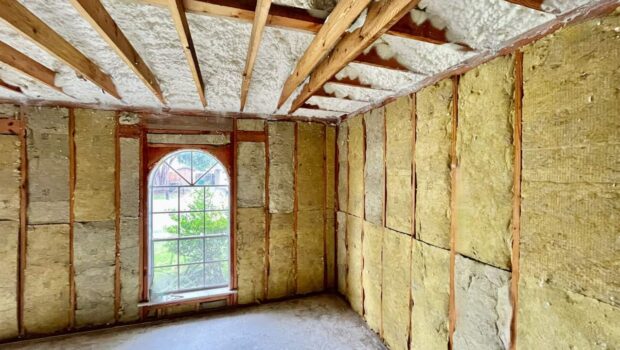Rockwool Insulation: The Ultimate Solution for Energy Efficiency and Safety
In today’s world, where energy efficiency and sustainability are priorities, choosing the right insulation for homes and commercial buildings is essential. One material that stands out in the market is Rockwool insulation. Known for its outstanding thermal, acoustic, and fire-resistant properties, Rockwool has become a popular choice for builders and homeowners alike. In this article, we will explore what Rockwool is, its benefits, and why it should be a top consideration for your next construction or renovation project.
What is Rockwool?
Rockwool is a type of mineral wool insulation made primarily from volcanic rock, such as basalt and dolomite. It is created through a process where the rock is melted at extremely high temperatures (around 1600°C) and then spun into fine fibers. These fibers are then compressed into a dense mat, which is used for various insulation products, including batts, boards, and blankets.
Key Benefits of Rockwool Insulation
1. Thermal Performance
One of the most significant advantages of Rockwool insulation is its excellent thermal performance. It helps maintain stable indoor temperatures, reducing the need for constant heating and cooling, and ultimately leading to energy savings. Whether you’re in a hot or cold climate, Rockwool provides year-round comfort and lowers energy consumption, making it an environmentally friendly option.
2. Fire Resistance
Rockwool is naturally fire-resistant due to its mineral composition. It can withstand temperatures of up to 1000°C without melting or releasing toxic fumes. This makes it an ideal choice for enhancing the fire safety of buildings, especially in critical areas like walls, roofs, and attics. The fire-resistant properties of Rockwool provide valuable time for evacuation in case of emergencies, potentially saving lives and minimizing property damage.
3. Sound Insulation
Acoustic performance is another area where Rockwool shines. The dense structure of the fibers helps to absorb sound waves, reducing noise transmission between rooms and from the outside. This makes it a popular choice for homes, schools, and offices where noise control is important. With Rockwool, you can enjoy a quieter, more peaceful indoor environment.
4. Moisture Resistance and Durability
Rockwool is water-resistant, meaning it does not absorb moisture. This property makes it highly durable and resistant to mold, rot, and mildew, ensuring that it maintains its insulating properties over time. The material is also resistant to pests, adding to its longevity and reliability in both residential and commercial settings.
Where Can Rockwool Be Used?
Rockwool insulation is versatile and can be used in a variety of applications, including:
- Walls and Floors: For superior soundproofing and thermal insulation.
- Roofs and Attics: To enhance energy efficiency and prevent heat loss.
- External Cladding Systems: To improve fire safety and energy performance in high-rise buildings.
- Industrial Settings: Rockwool is often used in industrial buildings to provide both fire safety and thermal regulation.
Our Albanian Company
As a proud Albanian company, we are committed to providing high-quality Rockwool insulation to our customers. In Albania, Rockwool is referred to as lesh guri. We understand the unique needs of our market and are dedicated to delivering insulation solutions that meet local standards while promoting energy efficiency and safety.
Environmental Benefits of Rockwool
Another major selling point of Rockwool is its eco-friendliness. The material is made from natural volcanic rock, which is abundant and sustainable. Additionally, the production process generates minimal waste, and Rockwool products can often be recycled after use. By choosing Rockwool, you’re not only opting for high-performance insulation but also contributing to a greener planet.
Installation and Cost Considerations
While Rockwool insulation may have a higher initial cost compared to other types of insulation, such as fiberglass, its durability and performance make it a cost-effective solution in the long run. Installation is straightforward for professionals, though DIY enthusiasts can also install Rockwool with the right tools and precautions.
It’s essential to follow proper installation guidelines to ensure the material’s efficiency and longevity. Working with a certified installer guarantees that your Rockwool insulation will perform optimally, providing you with the maximum benefits in terms of energy efficiency, fire resistance, and noise reduction.
Conclusion
Rockwool insulation offers an impressive array of benefits, from energy savings and fire protection to noise reduction and environmental sustainability. It’s a smart choice for anyone looking to improve the performance, safety, and comfort of their home or commercial property. Although it may come at a slightly higher cost initially, the long-term benefits make it an investment worth considering.
Whether you’re building a new home, renovating an existing one, or outfitting an industrial facility, Rockwool provides the kind of high-performance insulation you can rely on for years to come.
So, when you’re planning your next project, consider the many advantages of Rockwool insulation — a decision that delivers both immediate and long-term rewards.






















SUCH A AMAZING POST! THANK YOU....